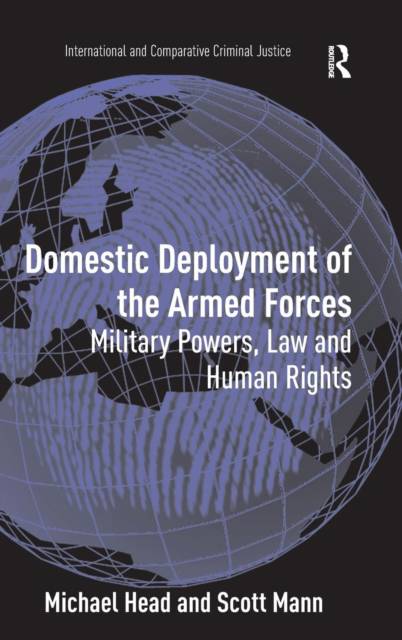
- Afhalen na 1 uur in een winkel met voorraad
- Gratis thuislevering in België vanaf € 30
- Ruim aanbod met 7 miljoen producten
- Afhalen na 1 uur in een winkel met voorraad
- Gratis thuislevering in België vanaf € 30
- Ruim aanbod met 7 miljoen producten
Zoeken
Domestic Deployment of the Armed Forces
Military Powers, Law and Human Rights
Michael Head, Scott Mann
€ 290,45
+ 580 punten
Uitvoering
Omschrijving
Until recently, internal use of the armed forces has been generally regarded by the public, as well as academic commentators, as conduct to be expected of a military or autocratic regime, not a democratic government. There is however growing concern that the 'war on terror' has been used to condition public opinion to accept the internal deployment of the armed forces, including for broader industrial and political purposes. This book examines the national and international law, human rights and civil liberties issues involved in governments calling out troops to deal with civil unrest or terrorism. As the introduction of military call-out legislation has become an emerging global trend in the opening years of the 21st century, there is considerable and growing interest in the constitutional and related problems surrounding the deployment of military forces for domestic purposes. Examining the changes underway in six comparable countries, the United States, Canada, Britain, Germany, Japan and Australia, this book provides a review and analysis of this trend, including its implications for legal and political rights.
Specificaties
Betrokkenen
- Auteur(s):
- Uitgeverij:
Inhoud
- Aantal bladzijden:
- 214
- Taal:
- Engels
- Reeks:
Eigenschappen
- Productcode (EAN):
- 9780754673460
- Verschijningsdatum:
- 14/09/2009
- Uitvoering:
- Hardcover
- Formaat:
- Genaaid
- Afmetingen:
- 156 mm x 234 mm
- Gewicht:
- 480 g

Alleen bij Standaard Boekhandel
+ 580 punten op je klantenkaart van Standaard Boekhandel
Beoordelingen
We publiceren alleen reviews die voldoen aan de voorwaarden voor reviews. Bekijk onze voorwaarden voor reviews.











